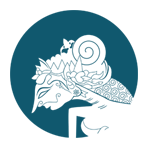Code Switching and Code Mixing Analysis in the Activities of the Avicenna Language Rayon Writing Class: A Sociolinguistic Study
 Country:
Country:
(1) Postgraduate School of Indonesian Education, Universitas Islam Malang, Indonesia, Indonesia
Abstract: This research started from the results of observations carried out in the Avicenna Language District. Based on observations, it is known that in the process of writing class activities tend to use code switching and code mixing. This study aims to describe the types of code switching, code mixing, the form of code switching, and the factors that cause code switching and code mixing in Avicenna's writing class activities. The method in data analysis is a qualitative description method. Data collection techniques through participant observation using recording and note-taking techniques. Meanwhile, data analysis uses inductive data analysis to find research results by categorizing specific things that have been found to be directed to general categories. The results of the analysis obtained in this study.
Keywords: code switch, code mix, factor, avicenna, an sociolinguistic study.
Adriana, I. (2012). Bahasa dan gender: antara dominasi dan subordinasi (sebuah kajian sosiolinguistik). OKARA, II, 152–164. http://ejournal.iainmadura.ac.id/index.php/ okara/article/view/425
Alibii, A. & Johan, S. (2018). Metodologi penelitian kualitatif. CV Jejak.
Azwardi. (2018). Metode penelitian pendidikan bahasa dan sastra indonesia. Syiah Kuala Universitas Press.
Baryadi, I. P. (2020). Teori linguistik sesudah strukturalisme. Sanata Dharma University Press.
Endraswara, S. (2006). Metode, teori, teknik penelitian kebudayaan: ideologi, epistemologi, dan aplikasi. Pustaka widyatama.
Hapsari, D. E. (2020). Alih kode dan campur kode dalam diskusi mahasiswa teknik informatika Universitas PGRI Madiun. Jurnalistrendi: Jurnal Linguistik, Sastra, Dan Pendidikan, 5(1).
Jazeri, M. (2017). Sosiolinguistik ontologi, epistimologi & aksiologi. Tulungagung: Akademi Pustaka.
Kementerian Pendidikan dan Kebudayaan. (2018). Kamus Besar Bahasa Indonesia (V). Balai Pustaka.
Kusujji, & Indrastuti, N. S. (1997). Alih kode dan campur kode penyiar radio. Humaniora, V, 38–45.
Kurniasih, D., & Zuhriyah, S. A. (2017). Alih kode dan campur kode di pondok pesantren mahasiswa darussalam. Indonesian Language Education and Literature, 3(1), 53. https://doi.org/10.24235/ileal.v3i1.1521
Mahajani, T. (2021). Sintaksis Bahasa Indonesia. CV Lindan Bestari.
Mamik. (2015). Metodologi kualitatif. Zifatama Publisher.
Mustikawati, A. D. (2015). Alih kode dan campur kode antara penjual dan pembeli (analisis pembelajaran berbahasa melalui studi sosiolinguistik). Jurnal Dimensi Pendidikan dan Pembelajaran. https://doi.org/10.2426/DPP.V2I2.%Y.PP%
Rohmadi, M., & Edy Tri Sulistyo, dan. (2014). Alih kode dan campur kode dalam pembelajaran bahasa indonesia di SMA. Jurnal Paedagogia, 17(1), 27–39.
Rohmani, S., Fuady, A., & Anindyarini, A. (2013). Analisis alih kode dan campur kode pada novel Negeri 5 Menara Karya Ahmad Fuadi. In Sastra Indonesia dan Pengajarannya (Vol. 2, Issue 1).
Sugiyono. (2013). Kualitatif, dan R&D. In Bandung: Alfabeta. Alfabeta.
Susmita, N., Keguruan, S. T., Pendidikan, I., Wilayah, M., Di, J., & Penuh, S. (2015). Alih kode dan campur kode dalam pembelajaran bahasa Indonesia di SMP Negeri 12 Kerinci. Jurnal Penelitian Universitas Jambi Seri Humaniora, 17(2), 87–98.
Ulfiyani, S. (2014). Alihkode dan campur kode dalam tuturan masyarakat bumiayu. Culture, 1(1), 92–100.
Yendra. (2018). Mengenal ilmu bahasa (Linguistik). Deepublish.
Yuliani, W. (2018). Metode penelitian deskriptif kualitatif dalam perspektif bimbingan konseling. Jurnal Quanta, 2(2), 83–91.
Yusnan, M., Risman Iye, K., & Riki, Bugis. (2024). Fakultas pendidikan bahasa dan sastra Universitas Muhammadiyah Buton YIPQ Sekolah Tinggi Agama Islam Baubau
Refbacks
- There are currently no refbacks.

This work is licensed under a Creative Commons Attribution-ShareAlike 4.0 International License.
The copyright is reserved to Pedagogy Review that is licensed under a Creative Commons Attribution-ShareAlike 4.0 International License.
Address:
CV. IMRECS: Jalan Gagak I, Kecamatan Larangan, Kota Tangerang. Postal Code: 15155
STKIP Al Islam Tunas Bangsa: Jalan Z.A. Pagar Alam No. 41 Gedong Meneng Bandar Lampung





